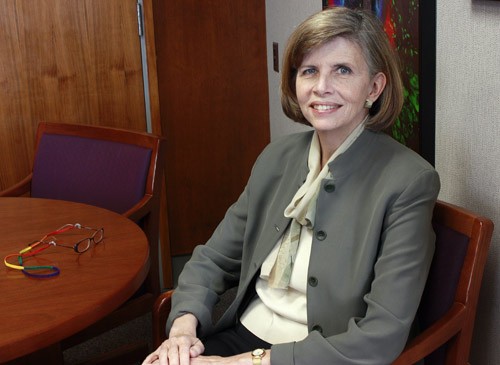Leslie Tolbert, UA vice president for research, spoke on Capitol Hill on Feb. 23 to lobby Congress for more funding for science facilities’ maintenance and renovation at research universities.
She used the UA as an example of the need universities have for funding for building infrastructure. Tolbert said the UA has a documented need for about $200 million to improve facilities.
She was speaking on behalf of the Association of American Universities and also the Association of Public and Land-grant Universities. The UA is a member of both associations.
Before being able to testify in front of the House Subcommittee of Research and Science Education, she was vetted in an interview process that involved several other candidates.
The subcommittee expressed concern about losing the global edge in science and wanted to hear from representatives of research institutions.
Pennsylvania State University, Medical University of South Carolina and the University of Illinois also had representatives, who testified on other topics.
According to Tolbert, federal agencies have research funding that provides for the direct costs of doing research, but funding for building renovation and pieces of equipment are rarely funded.
“”You’re funding this research, but you’re not going to be able to get the most bang for your buck if we can’t provide the research facilities that allow for the research to be done as well as possible,”” Tolbert said to Congress.
She said the committee was “”friendly”” with the ideas she was bringing up, but they were not all in favor of federal agencies providing these funds.
Tolbert says differences lie in what the states should cover, what the federal government should cover and what universities should generate from philanthropic donations.
She added that states look to the federal government to provide the infrastructure for the research it supports, but the federal government says it will provide the money for the research as long as the state provides the facilities, laboratories and equipment.
“”The reason for looking at this issue now is that we’re in an economic crisis. They (the state of Arizona) haven’t been able to fund us for years, but the point is, now more than ever they’re not going to be able to provide funding to bring labs up to par,”” Tolbert said. “”We need our faculty to be in a position to do cutting-edge research. They have to have the facilities that allow them to do the best possible research.””
Shay Stautz, UA associate vice president of federal relations, thought Tolbert’s testimony was important because research institutions, such as the UA, “”have contributed tremendously to the advancement of science in the U.S.””
“”Any time a knowledgeable voice such as Dr. Tolbert’s is heard in the halls of Congress,”” Stautz said, “”it has an impact either on the policy being considered or in adding to the information base from which policymakers make decisions that impact our nation’s universities.””
Tolbert’s ideas may help the committee plan for the future.
In this case, the House Science Committee wanted to hear about the status of the nation’s university research infrastructure and solicited ideas on how to improve it. Dr. Tolbert succeeded in providing meaningful insight into both in her well-delivered testimony, Stautz said.









